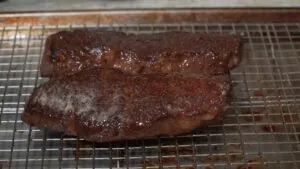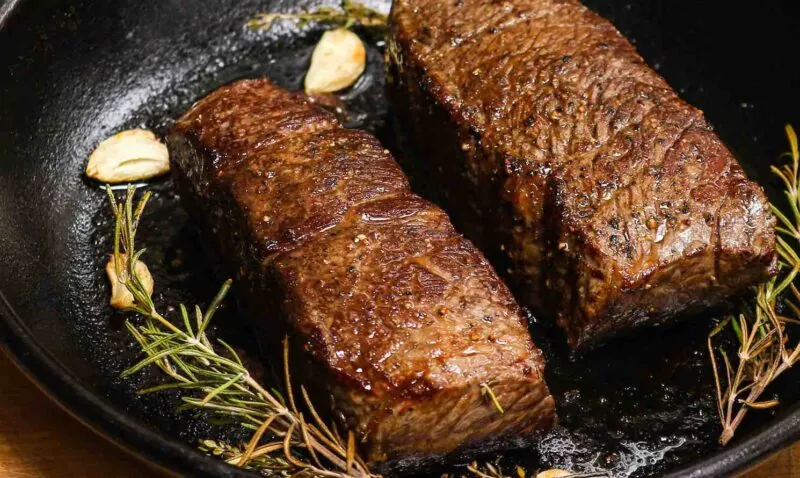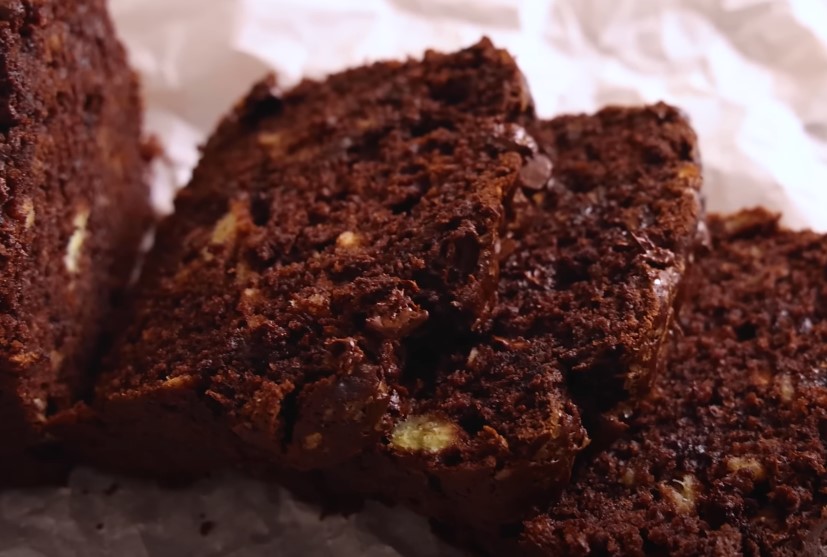Denver steak is a hidden gem. It’s tender, flavorful, and budget-friendly compared to other cuts. Cooked right, it’s perfect for a quick weeknight dinner or a backyard BBQ. Serve it with roasted veggies, a fresh salad, or creamy mashed potatoes for a complete meal.
I love eating this steak because it always comes out so tender and full of rich, beefy flavor. I have cooked it many times, and every bite feels like a reward.
I like how the marbling melts into the meat, making it juicy and soft without much effort.
Whether I grill it or sear it on a hot skillet, it tastes amazing. I feel confident serving it to guests because I know it never disappoints. This cut has become one of my favorite things to cook and enjoy.

Denver Steak Recipe
Equipment
- Cast-iron skillet (or any heavy-bottomed pan)
- Tongs
- Instant-read thermometer
- Cutting board
- Sharp knife
Ingredients
- 2 2 Denver steaks
- 1 Tbsp Olive oil
- 1 Tsp Salt
- ½ Tsp Black pepper
- 1 Tsp Garlic powder
- 1 Tbsp Unsalted butter (optional)
- 1 Sprig fresh thyme or rosemary (optional)
Instructions
- Prep the SteaksPat the steaks dry with paper towels.Rub both sides of the steaks with olive oil, salt, pepper, and garlic powder.Let the steaks sit at room temperature for 20 minutes to ensure even cooking.

- Heat the PanPlace the skillet over medium-high heat until it’s smoking hot. A hot pan ensures a perfect sear.

- Sear the SteaksAdd the steaks to the hot pan.Cook for 3-4 minutes on one side without moving them. This develops a crust.Flip the steaks and cook for another 3-4 minutes for medium-rare.

- Check the TemperatureUse an instant-read thermometer to check the internal temperature:125°F for rare135°F for medium-rare145°F for medium

- Add Butter and Herbs (Optional)For added richness, toss butter and a sprig of thyme or rosemary into the pan during the last minute of cooking.Spoon the melted butter over the steaks as they cook.

- Rest the MeatRemove the steaks from the pan and transfer them to a cutting board.Let them rest for 5-7 minutes to lock in the juices.

- Slice and ServeSlice the steaks against the grain for maximum tenderness.Serve immediately with your favorite sides.

Video
Notes
- Use Cast Iron: A well-seasoned cast iron skillet gives the steak the best crust.
- Rest the Steak: Resting is key to a juicy steak—don't skip this step!
- Grill Option: For a smoky flavor, finish the steak on a grill instead of in the skillet.
How to Pick the Perfect Denver Steak?

Start with a good cut. Denver steak is a marbled, tender piece from the chuck, but not all cuts are equal.
- Marbling: Thin streaks of fat mean flavor and tenderness.
- Thickness: Aim for at least 1 inch thick for even cooking.
- Color: Bright, deep red meat is fresh and high-quality.
Why the Pan Matters?
The pan you choose can make or break your steak. A cast iron skillet is ideal.
- It gets super hot, giving you a killer crust.
- It distributes heat evenly, so your steak cooks perfectly.
If you don’t have cast iron, go for stainless steel. Avoid non-stick pans—they don’t sear well. Heat the pan until it’s smoking hot before you add the steak.
Season It Like a Pro

Keep it simple. Salt, pepper, and maybe a touch of garlic powder.
- Salt enhances the natural flavor of the beef.
- Pepper adds a subtle kick.
- Garlic powder? It’s optional but adds depth.
Rub the steak with olive oil first. It helps the seasoning stick and creates a nice crust when cooking.
Get That Perfect Sear
Searing locks in flavor and gives your steak that restaurant-quality crust.
- Preheat the Pan: Let it heat until it’s almost smoking.
- Don’t Crowd the Pan: Cook one or two steaks at a time.
- Press Gently: After placing the steak, press it lightly with tongs for full contact.
Leave it alone while it sears. Flip it once, not over and over.
The Secret to Juicy Steak – Resting
Resting isn’t optional. It’s the trick to keeping juices in the steak, not on your cutting board.
- Rest for 5-7 minutes after cooking.
- Cover loosely with foil to keep it warm.
- Slice against the grain for maximum tenderness.
What to Serve With Your Steak?
You’ve nailed the steak. Now, let’s talk sides. Great options include:
- Roasted Veggies: Think asparagus, carrots, or Brussels sprouts.
- Potatoes: Mashed, roasted, or even crispy fries.
- Fresh Salad: A tangy vinaigrette balances the richness of the steak.
Want a sauce? Chimichurri, garlic butter, or even a simple pan sauce made with the steak drippings are winners.
If you’re interested in elevating your cooking with rich, flavorful butters, be sure to explore how clarified butter can bring out the best in your sauces and dishes.
Avoid These Rookie Mistakes
Even experienced cooks slip up. Here’s what to avoid:
- Skipping the Rest: Juices will spill everywhere.
- Underheating the Pan: No sizzle, no crust.
- Overcooking: Use a thermometer, not guesswork.
FAQs
How Does Denver Steak Compare to Ribeye?
Denver steak is similar to ribeye in tenderness and flavor but costs less. It’s leaner than ribeye, so it doesn’t have the same rich, buttery texture. If you love steak but want a more affordable option, Denver steak is a great choice.
Can I Marinate This Steak?
Absolutely! While Denver steak is flavorful on its own, a marinade can enhance it. Use something simple like olive oil, garlic, soy sauce, and a splash of vinegar.
Marinate for 30 minutes to an hour—don’t overdo it, or the texture can get mushy.
Is Denver Steak Good for Grilling?
Yes! Denver steak grills beautifully thanks to its marbling. Just be sure to cook over medium-high heat and watch the time closely. A quick sear is all it takes. Overcooking will dry it out, so aim for medium-rare.
What’s the Best Way to Tenderize Denver Steak?
Denver steak is already tender if cooked right. But if you’re worried, here are some tips:
- Use a meat mallet to gently pound it.
- Marinate it with an acidic ingredient like vinegar or citrus juice.
- Slice it thinly against the grain after cooking.
Can I Cook Denver Steak in the Oven?
Yes, but it’s best to start it on the stovetop for a good sear. Once seared, transfer it to a preheated oven at 375°F and cook until it reaches your desired doneness. Use a meat thermometer to avoid overcooking.
Final Thoughts
Denver steak might not be the most famous cut, but it deserves a spot in your kitchen. It’s flavorful, tender, and doesn’t break the bank. Whether you’re searing it in a cast iron pan or throwing it on the grill, the key is to keep it simple and let the steak shine.
Don’t overthink it. Nail the basics—good seasoning, a hot pan, and proper resting—and you’ll have a steak that rivals the expensive cuts.
Thinking about what to cook next? Try Steak Pizzaiola with Fettuccine Pasta.
@knottywoodbbq Is this the best way to cook a Denver Steak?? 🥩 Would you marinade this steak? . . . #denversteak #steak #knottywoodbbq #knottywood #steaknight #raresteak #steakdinner #steaktime #webergrill #snskettle #smokedbbq #searedsteak #denversteaks #primesteak #primesteaks #smokedmeat #almondwood #firecooking ♬ Good Cooking – Noctum47
Related Posts:
- How to Make Subway-Style Cookies - A Step-by-Step…
- Step-by-Step Guide to the Best Blue Cheese Dressing Recipe
- Steak Pizzaiola with Fettuccine Pasta Recipe (With a…
- How to Make Healthy Meal Planning Fun and Enjoyable
- 10 High-Protein Recipes Perfect for Weekly Meal Prep
- Perfect Swedish Meatballs Recipe - Creamy, Juicy &…









1 thought on “How to Cook Denver Steak: Step-by-Step Guide to a Tender and Juicy Meal”
This turned out pretty good. I poked it with a fork to tenderize it, then let it sit in the marinade.
I used my small electric grill at home – probably left it on a bit too long. and still, the steak came out tender. Next time I’ll cook it a little less. And trust me, there will BE A NEXT TIME!!!